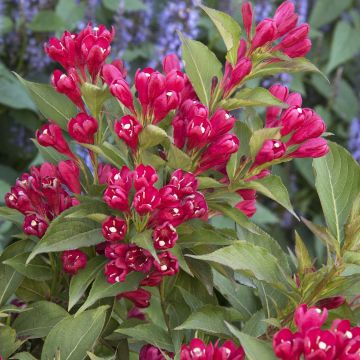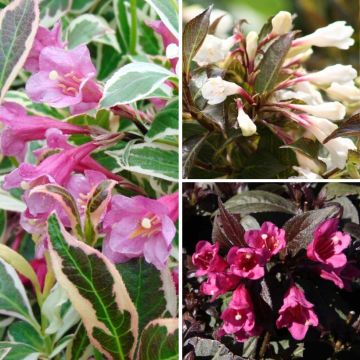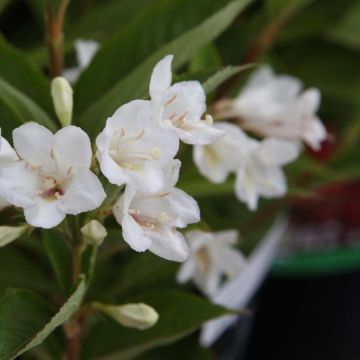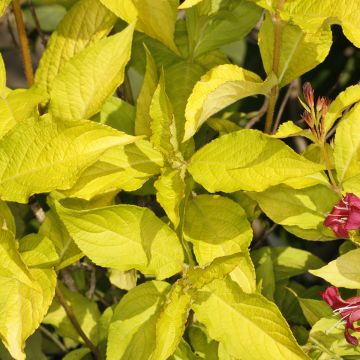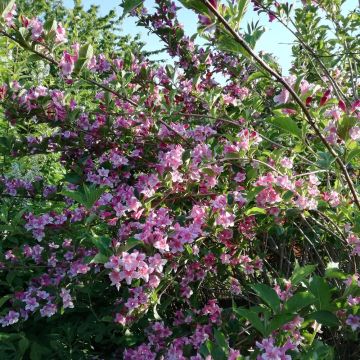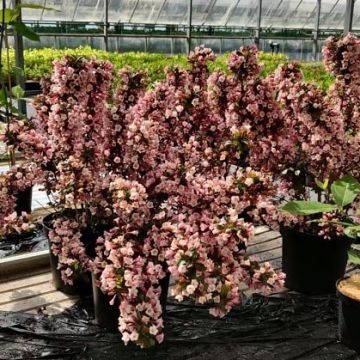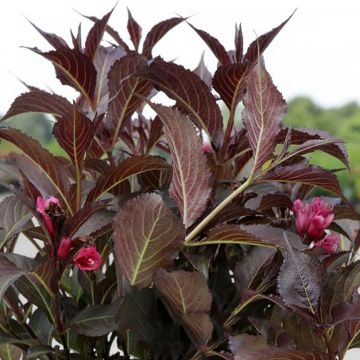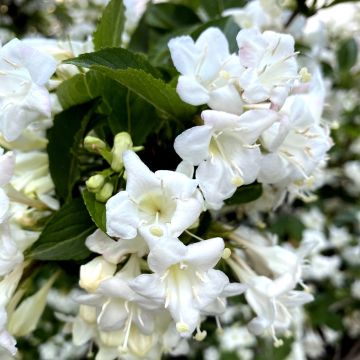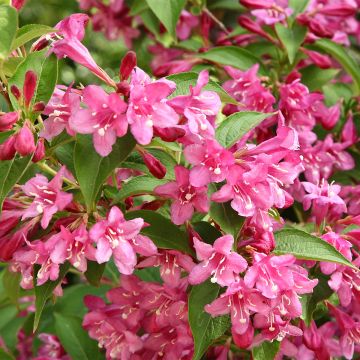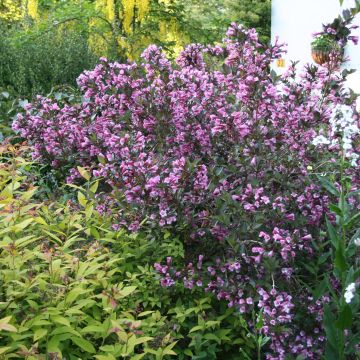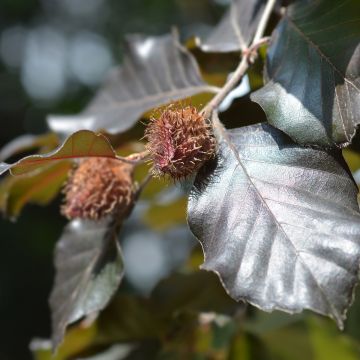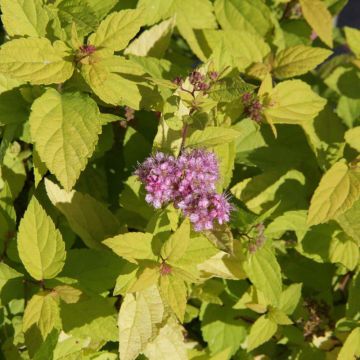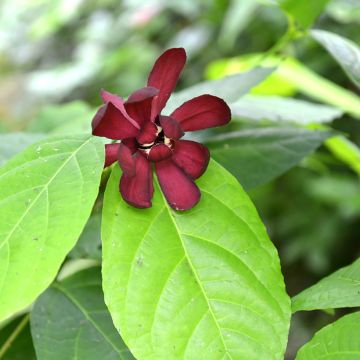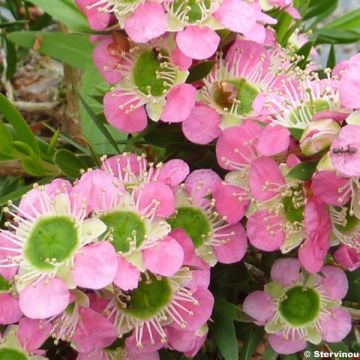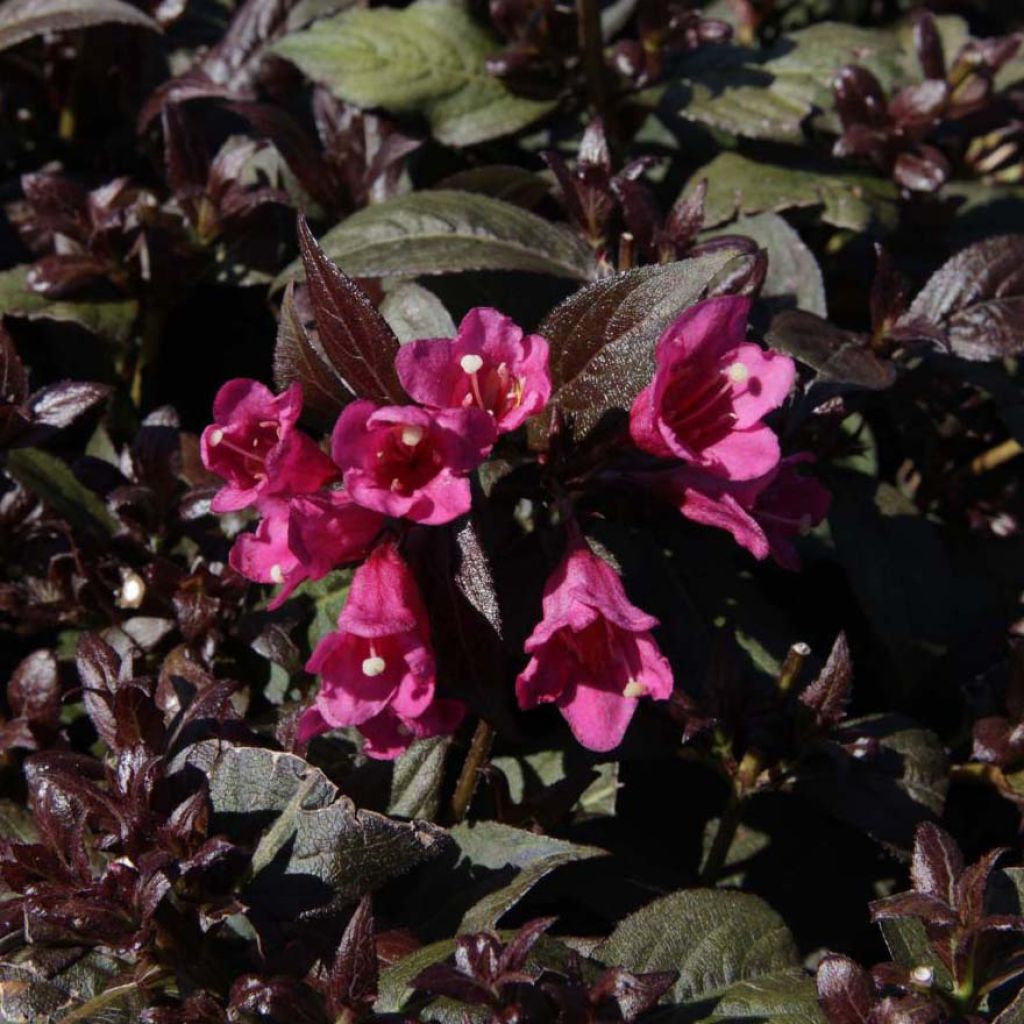

Weigela florida Minor Black
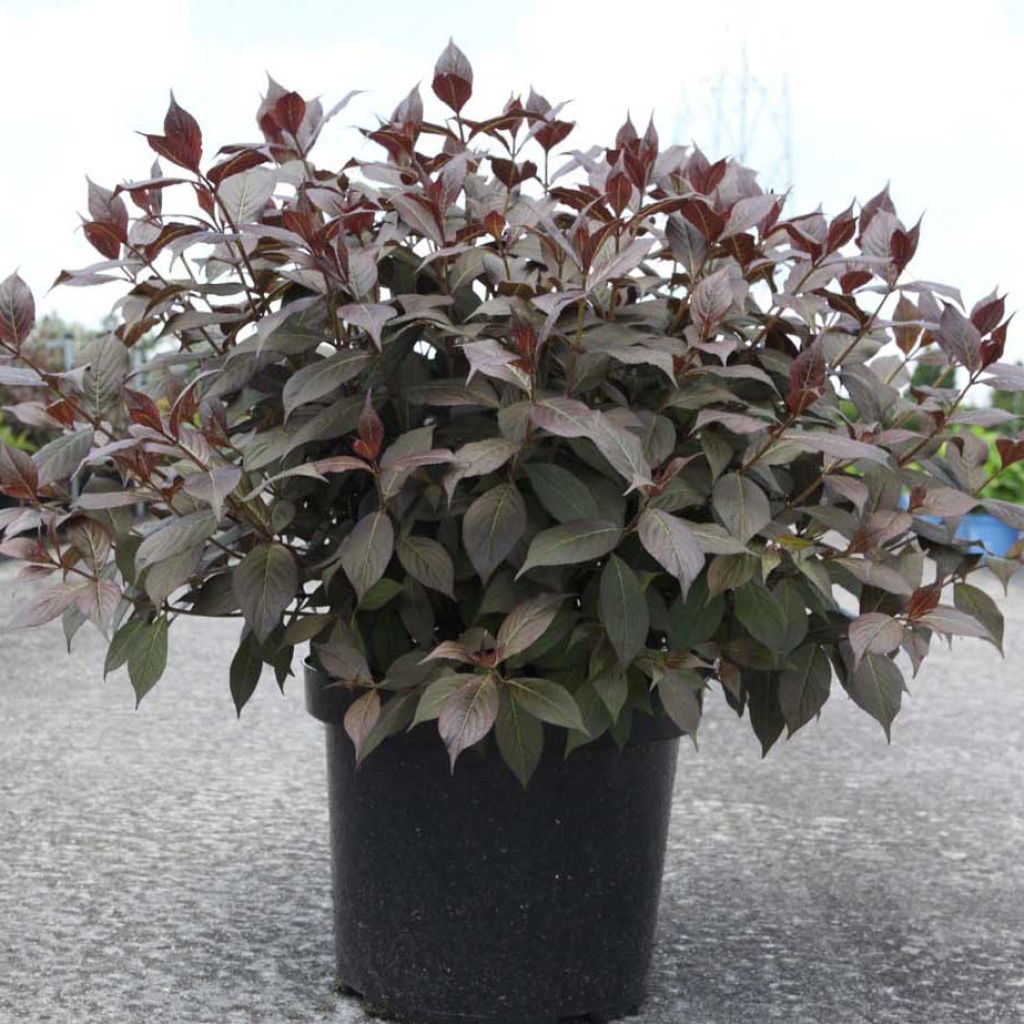

Weigela florida Minor Black
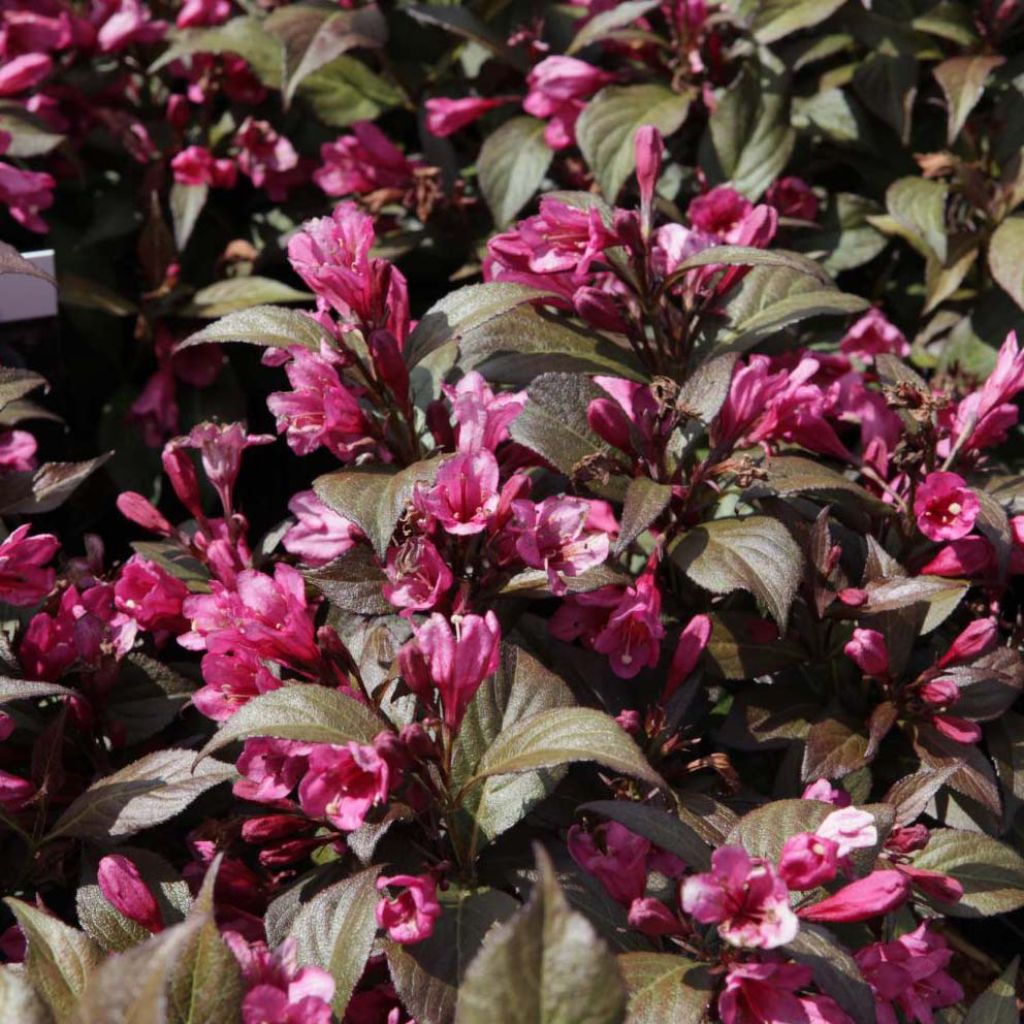

Weigela florida Minor Black
Weigela florida Minor Black
Weigela x florida Minor Black® 'Verweig 3'
Old-fashioned Weigela
I have planted three weigelas and this one is by far the most beautiful! The flower buds are stunning! I can't wait to see the flowers.
Helene, 22/04/2023
Special offer!
Receive a €20 voucher for any order over €90 (excluding delivery costs, credit notes, and plastic-free options)!
1- Add your favorite plants to your cart.
2- Once you have reached €90, confirm your order (you can even choose the delivery date!).
3- As soon as your order is shipped, you will receive an email containing your voucher code, valid for 3 months (90 days).
Your voucher is unique and can only be used once, for any order with a minimum value of €20, excluding delivery costs.
Can be combined with other current offers, non-divisible and non-refundable.
Home or relay delivery (depending on size and destination)
Schedule delivery date,
and select date in basket
This plant carries a 24 months recovery warranty
More information
We guarantee the quality of our plants for a full growing cycle, and will replace at our expense any plant that fails to recover under normal climatic and planting conditions.

Would this plant suit my garden?
Set up your Plantfit profile →
Description
Weigela Minor Black is a recent dwarf variety of Weigela that is floriferous, remarkably colourful and particularly suited for small spaces and pot cultivation. Its foliage is dark, a deep purple-violet with chocolate hues, with a glossy finish, beautifully showcasing its abundant flowering in the form of small bright purple-pink bells in early summer. This flowering sometimes reoccurs in September, depending on the climatic conditions. Weigelas are easy-to-grow shrubs in ordinary, moist but well-drained soil. Compact varieties can be combined with all kinds of small shrubs and perennials in wild or romantic flower beds, small flowering hedges, or large borders.
Weigela Minor Black 'Verweig 3' is derived, among others, from W. florida, native to northeastern China, Korea, and Japan. Weigelas are Asian and belong to the Caprifoliaceae family, just like honeysuckles. This cultivar, obtained in the Netherlands in 2003, shows particularly reduced development. Its vegetation is bushy, upright, compact, and rounded, forming after 4 years of growth a ramified bush a little wider than it is tall, reaching approximately 60 to 70 cm (24 to 28 in) in height. The foliage of this deciduous variety is particularly dark. It consists of lanceolate, slightly undulate, satin leaves, with a purple-brown colour with green reflections in summer, turning bronze in autumn. Its funnel-shaped flowers are produced abundantly in May-June. They are a deep and vibrant pink, carried in corymbs at the ends of the previous year's branches. These flowers, which are melliferous and nectariferous, sometimes reoccur in late summer.
Hardy well beyond -20 °C (-4 °F), Weigelia 'Minor Black' thrives in sunny or semi-shaded locations, in moist but well-drained soil. Its dense and compact habit makes it well suited for small gardens and for ornamenting terraces. Its remarkably colourful foliage, far from being dull, has nothing to envy from that of physocarpus or certain small viburnums, and is brought to life by brilliant and long-lasting flowering. In a flower bed, for example, give it companions such as golden-leaved spireas (Spiraea betulifolia 'Tor Gold') or spireas with massive white spring flowers (Spiraea cantoniensis), variegated dogwoods, ornamental brambles, or a Viburnum 'Bailey Compact'. In the background, the very dark foliage of hollies, boxwoods, or Mahonia will form a beautiful setting for its changing colours and will provide winter decoration. This Weigela can also be planted in a container to adorn the terrace, or as a standalone to attract attention in small gardens.
Report an error about the product description
Weigela florida Minor Black in pictures
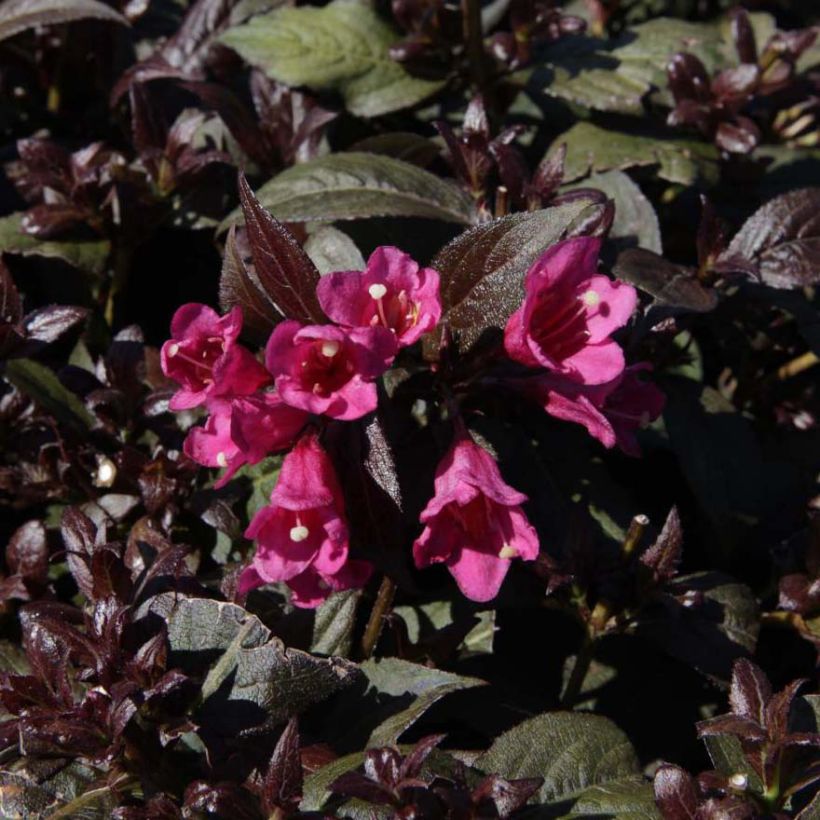

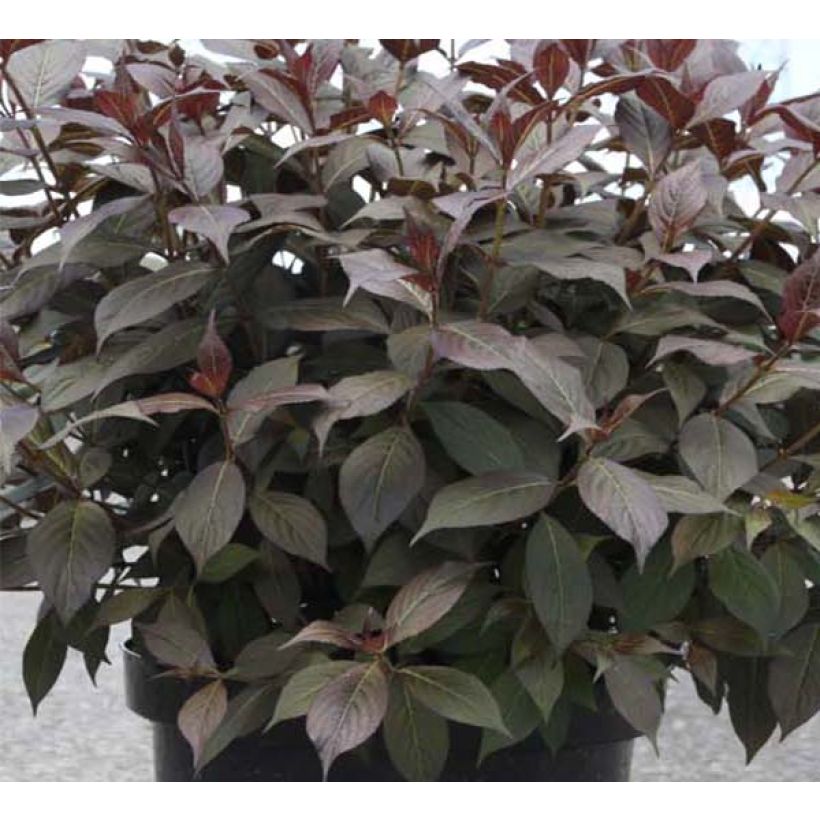

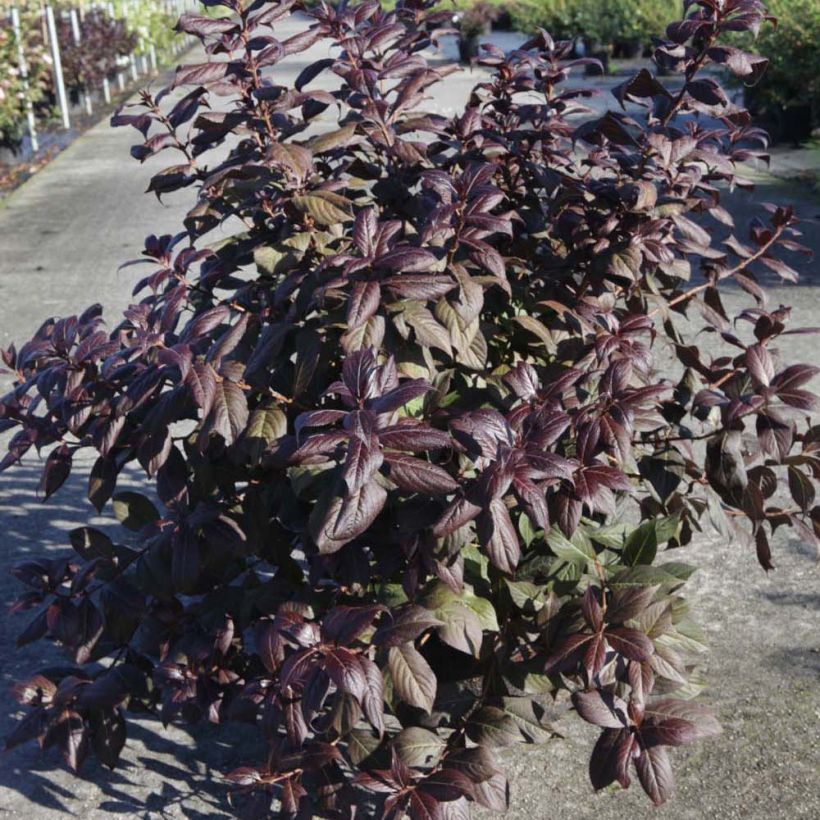

Plant habit
Flowering
Foliage
Botanical data
Weigela
x florida
Minor Black® 'Verweig 3'
Caprifoliaceae
Old-fashioned Weigela
Cultivar or hybrid
Other Weigela
View all →Planting and care
Hardy down to -25 °C (-13 °F), Weigela 'Minor Black' thrives in sunny or semi-shaded locations. Plant it in a moist but well-drained ordinary soil with a slightly acidic pH, neutral to slightly alkaline, from October to March (excluding the frost period). To maintain a compact habit and encourage flowering, shorten the branches that have produced spring flowers by 2/3, just after flowering.
Planting period
Intended location
Care
-
, onOrder confirmed
Reply from on Promesse de fleurs
Similar products
Haven't found what you were looking for?
Hardiness is the lowest winter temperature a plant can endure without suffering serious damage or even dying. However, hardiness is affected by location (a sheltered area, such as a patio), protection (winter cover) and soil type (hardiness is improved by well-drained soil).

Photo Sharing Terms & Conditions
In order to encourage gardeners to interact and share their experiences, Promesse de fleurs offers various media enabling content to be uploaded onto its Site - in particular via the ‘Photo sharing’ module.
The User agrees to refrain from:
- Posting any content that is illegal, prejudicial, insulting, racist, inciteful to hatred, revisionist, contrary to public decency, that infringes on privacy or on the privacy rights of third parties, in particular the publicity rights of persons and goods, intellectual property rights, or the right to privacy.
- Submitting content on behalf of a third party;
- Impersonate the identity of a third party and/or publish any personal information about a third party;
In general, the User undertakes to refrain from any unethical behaviour.
All Content (in particular text, comments, files, images, photos, videos, creative works, etc.), which may be subject to property or intellectual property rights, image or other private rights, shall remain the property of the User, subject to the limited rights granted by the terms of the licence granted by Promesse de fleurs as stated below. Users are at liberty to publish or not to publish such Content on the Site, notably via the ‘Photo Sharing’ facility, and accept that this Content shall be made public and freely accessible, notably on the Internet.
Users further acknowledge, undertake to have ,and guarantee that they hold all necessary rights and permissions to publish such material on the Site, in particular with regard to the legislation in force pertaining to any privacy, property, intellectual property, image, or contractual rights, or rights of any other nature. By publishing such Content on the Site, Users acknowledge accepting full liability as publishers of the Content within the meaning of the law, and grant Promesse de fleurs, free of charge, an inclusive, worldwide licence for the said Content for the entire duration of its publication, including all reproduction, representation, up/downloading, displaying, performing, transmission, and storage rights.
Users also grant permission for their name to be linked to the Content and accept that this link may not always be made available.
By engaging in posting material, Users consent to their Content becoming automatically accessible on the Internet, in particular on other sites and/or blogs and/or web pages of the Promesse de fleurs site, including in particular social pages and the Promesse de fleurs catalogue.
Users may secure the removal of entrusted content free of charge by issuing a simple request via our contact form.
The flowering period indicated on our website applies to countries and regions located in USDA zone 8 (France, the United Kingdom, Ireland, the Netherlands, etc.)
It will vary according to where you live:
- In zones 9 to 10 (Italy, Spain, Greece, etc.), flowering will occur about 2 to 4 weeks earlier.
- In zones 6 to 7 (Germany, Poland, Slovenia, and lower mountainous regions), flowering will be delayed by 2 to 3 weeks.
- In zone 5 (Central Europe, Scandinavia), blooming will be delayed by 3 to 5 weeks.
In temperate climates, pruning of spring-flowering shrubs (forsythia, spireas, etc.) should be done just after flowering.
Pruning of summer-flowering shrubs (Indian Lilac, Perovskia, etc.) can be done in winter or spring.
In cold regions as well as with frost-sensitive plants, avoid pruning too early when severe frosts may still occur.
The planting period indicated on our website applies to countries and regions located in USDA zone 8 (France, United Kingdom, Ireland, Netherlands).
It will vary according to where you live:
- In Mediterranean zones (Marseille, Madrid, Milan, etc.), autumn and winter are the best planting periods.
- In continental zones (Strasbourg, Munich, Vienna, etc.), delay planting by 2 to 3 weeks in spring and bring it forward by 2 to 4 weeks in autumn.
- In mountainous regions (the Alps, Pyrenees, Carpathians, etc.), it is best to plant in late spring (May-June) or late summer (August-September).
The harvesting period indicated on our website applies to countries and regions in USDA zone 8 (France, England, Ireland, the Netherlands).
In colder areas (Scandinavia, Poland, Austria...) fruit and vegetable harvests are likely to be delayed by 3-4 weeks.
In warmer areas (Italy, Spain, Greece, etc.), harvesting will probably take place earlier, depending on weather conditions.
The sowing periods indicated on our website apply to countries and regions within USDA Zone 8 (France, UK, Ireland, Netherlands).
In colder areas (Scandinavia, Poland, Austria...), delay any outdoor sowing by 3-4 weeks, or sow under glass.
In warmer climes (Italy, Spain, Greece, etc.), bring outdoor sowing forward by a few weeks.






























